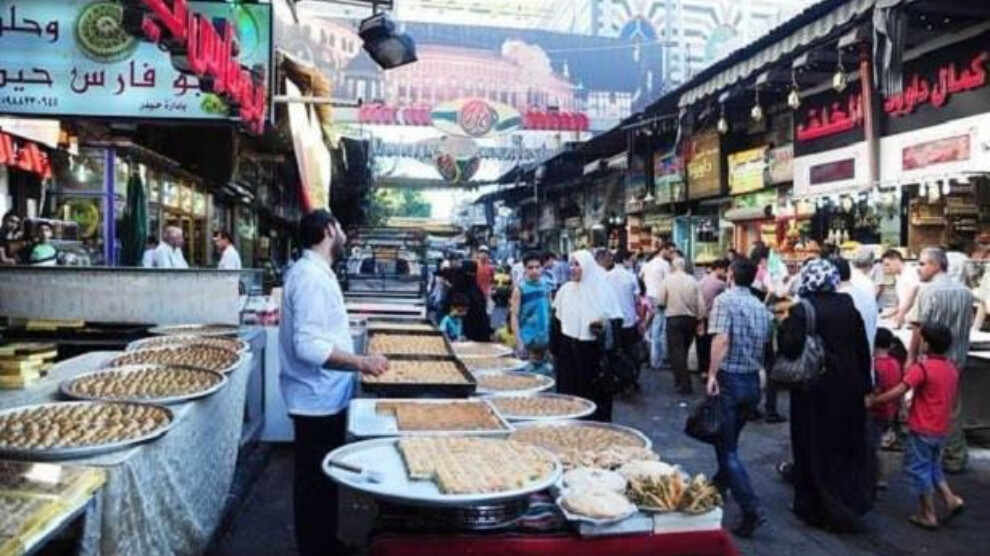Cost of living increasing in Damascus government regions
The prices of basic daily products have risen with the arrival of the Ramadan month. Syrian citizens are in financial difficulties.
The prices of basic daily products have risen with the arrival of the Ramadan month. Syrian citizens are in financial difficulties.

There has been an increase in food prices in the regions under the control of the Damascus government. The purchasing power of citizens who have fixed salaries, is decreasing.
HIGH PRICES
One kilo of red meat costs 27,000 Syrian liras, a package of eggs 7,000 Syrian liras, a kilo of cheese 7,500 Syrian liras, a kilo of cucumbers 2,200 Syrian liras, a litre of sunflower oil 10,000 Syrian liras, a kilo of chicken meat 5,500 Syrian liras. In addition, after the Cender and Dêr Eli stations were closed, there have been electricity cuts. Citizens need to use more gas. Furthermore, the increase in coronavirus cases also makes life harder for citizens.
'NOBODY OBEYING THE LAWS OF THE GOVERNMENT'
Speaking to ANHA, a citizen named N.W. said that tradesmen are not afraid of government sanctions and the prices have doubled with the month of Ramadan. Another resident F.H. stated that the government did not protect the rights of consumers and could not prevent the price hikes in the Ramadan month.
The Damascus government is introducing some laws. However, these laws only remain in newspaper pages because nobody obeys these laws. The Damascus government is not monitoring the process.
'MAKING A LIVING BECAME DIFFICULT'
An economist in Damascus stated that the Syrian lira gained value in recent days, but this was not reflected in product prices. The economist underlined that there was no decrease in the price of any product other than the dollar and gold. The economist added that the increases in civil servant salaries are not enough.
‘NO SOCIAL SOLIDARITY LEFT’
A sociologist from Damascus University, who wanted to remain anonymous for security reasons, said: “Syria is experiencing a crisis. One of the reasons for the social problems is the economy. Society is losing its cultural values. It forgets solidarity. Some rich people share photos of generous iftar tables on social media, while others could barely find food. Some tradesmen keep food supplies in warehouses and sell them on the black market. Such things affect society very badly."